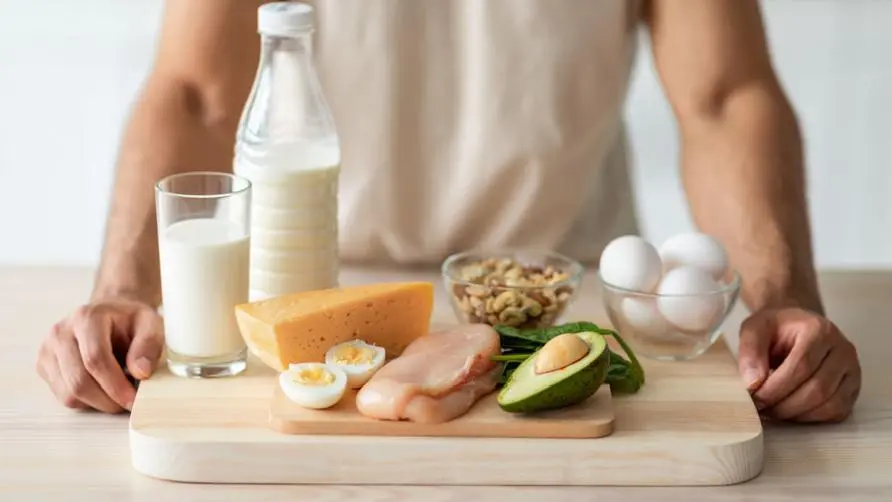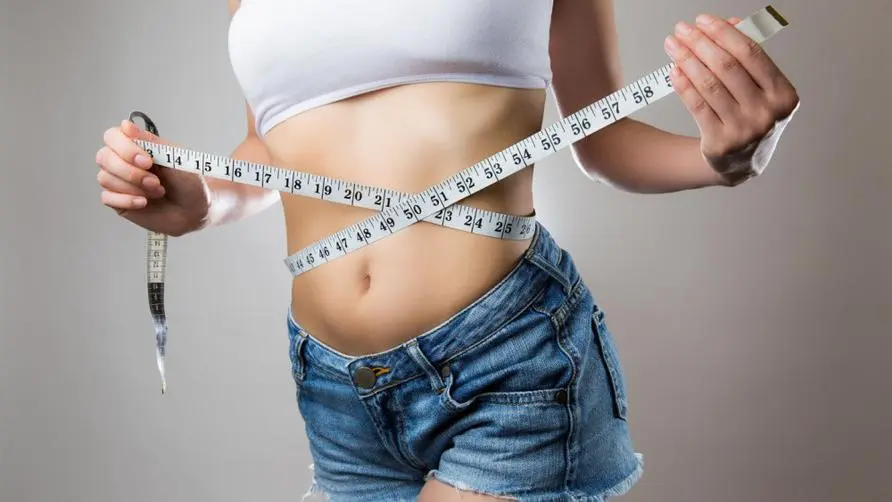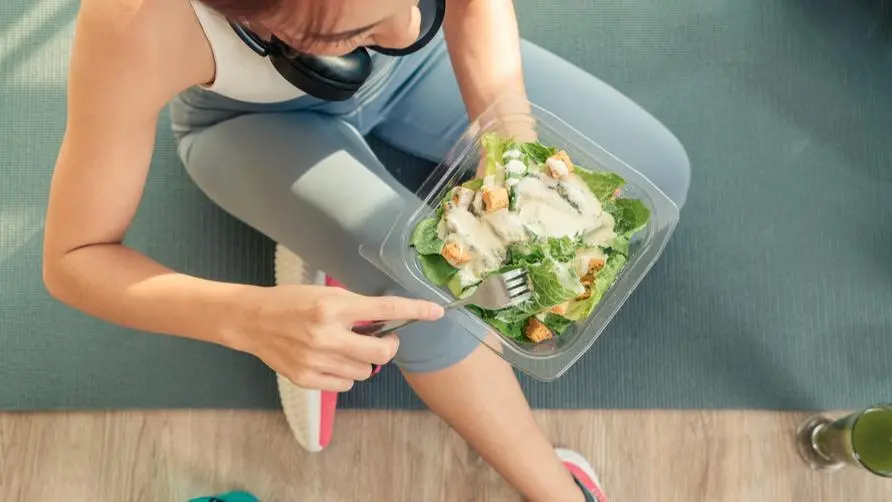Can't you build muscle and lose fat by eating "this kind of protein"? Nutritionist reveals the consequences: it will only cause "violent growth" of visceral fat

A good source of protein is crucial for any ethnic group; but how should you choose it in order to avoid “stepping into thunder”? Nutritionist Gao Minmin pointed out in a social post that eating the right protein can help build muscle, lose fat, and maintain cell health, while consuming poor protein sources will increase visceral fat.
A must-see for building muscle and losing fat! Nutritionist reveals 20 kinds of excellent proteins
Nutritionist Gao Minmin said that for healthy adults, it is recommended to consume about “body weight (kg) * 0.8” grams of protein per day. Based on the size of an average person’s hand, the size of a palm is about 3-5 servings, and the protein content is 21-35 grams. That is, the recommended daily intake of protein is about 3-8 servings. As for which foods are good sources of protein? Highly sensitive nutritionists list the following (the following are the values per 100g):
1. Yellow kernel black beans
Calories: 205 kcal
Carbohydrates: 40.3 g
Protein: 20.6 g
Fat: 2.1 g
2. Filet mignon
Calories: 184 kcal
Carbohydrates: 0.1 g
Protein: 20.6 g
Fat: 10.7 g
3. Bangbang legs
Calories: 151 kcal
Carbohydrates: 0 g
Protein: 18.9 g
Fat: 7.8 g
4. Ayu
Calories: 147 kcal
Carbohydrates: 0 g
Protein: 18.5 g
Fat: 7.5 g
5. Boiled eggs
Calories: 144 kcal
Carbohydrates: 1.7 g
Protein: 14 g
Fat: 9.2 g
6. Pork shank
Calories: 123 kcal
Carbohydrates: 0.4 g
Protein: 20.4 g
Fat: 4 g
7. Skinless chicken breast
Calories: 117 kcal
Carbohydrates: 0.6 g
Protein: 23.3 g
Fat: 1.9 g
8. Sailfish
Calories: 111 kcal
Carbohydrates: 0.8 g
Protein: 26 g
Fat: 0 g
9. Snapper
Calories: 110 kcal
Carbohydrates: 2.5 g
Protein: 18.2 g
Fat: 3.6 g
10. Chicken tenderloin
Calories: 109 kcal
Carbohydrates: 0 g
Protein: 24.2 g
Fat: 0.6 g
11. White shrimps
Calories: 103 kcal
Carbohydrates: 0 g
Protein: 22 g
Fat: 1 g
12. Grass shrimp
Calories: 100 kcal
Carbohydrates: 1 g
Protein: 22 g
Fat: 7 g
13. Edamame with pods
Calories: 97 kcal
Carbohydrates: 15 g
Protein: 12.9 g
Fat: 1.7 g
14. Traditional tofu
Calories: 87 kcal
Carbohydrates: 6 g
Protein: 8.5 g
Fat: 3.4 g
15. Scallops
Calories: 57 kcal
Carbohydrates: 1.7 g
Protein: 12.7 g
Fat: 0.4 g
16. flower branches
Calories: 57 kcal
Carbohydrates: 3.7 g
Protein: 12.2 g
Fat: 0.6 g
17. Oyster
Calories: 54 kcal
Carbohydrates: 4.2 g
Protein: 9.4 g
Fat: 1.6 g
18. Squid
Calories: 50 kcal
Carbohydrates: 3 g
Protein: 11.3 g
Fat: 0.2 g
19. Clams
Calories: 37 kcal
Carbohydrates: 2.7 g
Protein: 7.6 g
Fat: 0.5 g
20. Sugar-free soy milk
Calories: 32 kcal
Carbohydrates: 0.7 g
Protein: 3.6 g
Fat: 1.9 g
Eating too much can increase visceral fat! Try to touch these super NG protein sources as little as possible
Nutritionist Gao Minmin also emphasized that in addition to taking in more good protein, you should also “seek good luck and avoid bad luck” during your daily meals. The following protein sources have been processed and seasoned and should be avoided by eaters or office workers:
Processed meat categories: sausages, ham, bacon, hamburger steaks, vegetarian steaks. During the processing of many meat products, chemicals, preservatives, and seasonings are added, and meat products with high fat content are also selected. Excessive intake may even cause cancer risks.
High-fat meat: three-layer pork, roasted pork, pork belly, chicken butt. Meats with excessive fat content will turn into cholesterol and triglycerides in the body after excess calories are absorbed. If coupled with insufficient exercise, it can easily lead to the accumulation of visceral fat.
High-temperature fried foods: fried tofu skin, fried chicken steak, fried meat. Frying food at high temperatures will not only destroy the original nutrients, but also increase the intake of more fat, leading to the accumulation of visceral fat.
Finally, nutritionist Gao Minmin reminds the public that good protein sources are not limited to meat. Plant-based proteins such as beans have lower fat and cholesterol content, are richer in dietary fiber and phytochemicals, and are suitable for vegetarians. It is recommended to consume part of plant-based protein every day instead of animal-based protein; beans such as edamame, black beans, soybeans, etc. are all good sources of plant-based protein. In addition, a high-protein diet combined with strength training can also help weight loss people “build muscle and lose fat” more efficiently.
Further reading:





